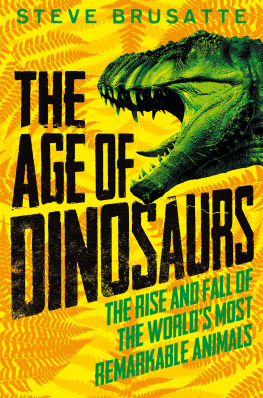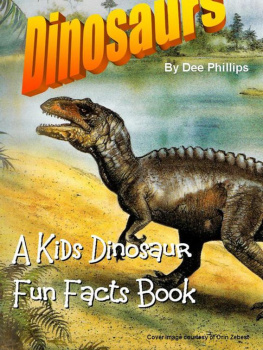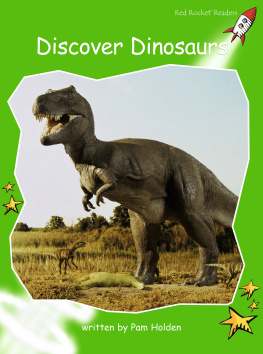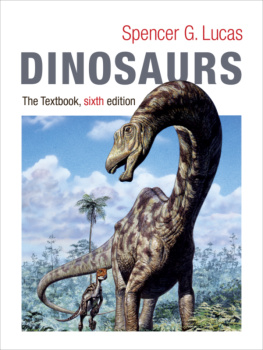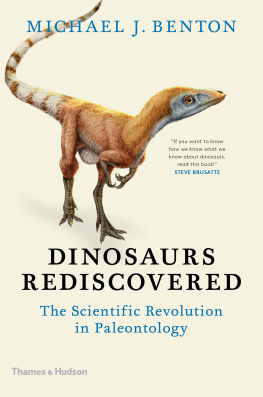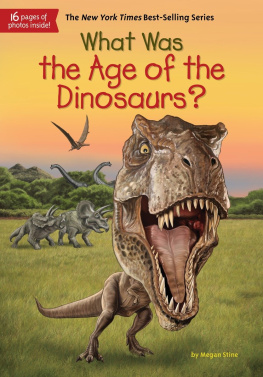
Simon & Schuster, Inc.
1230 Avenue of the Americas
New York, NY 10020
www.SimonandSchuster.co.uk
Copyright 2017 by Kenneth J. Lacovara
All rights reserved, including the right to reproduce this book or portions thereof in any form whatsoever. For information address Simon & Schuster Subsidiary Rights Department, 1230 Avenue of the Americas, New York, NY 10020
TED, the TED logo, and TED Books are trademarks of TED Conferences, LLC.
First TED Books hardcover edition September 2017
TED BOOKS and colophon are registered trademarks of TED Conferences, LLC
SIMON & SCHUSTER and colophon are registered trademarks of Simon & Schuster, Inc.
For information about special discounts for bulk purchases, please contact Simon & Schuster Special Sales at 1-866-506-1949 or .
For information on licensing the TED Talk that accompanies this book, or other content partnerships with TED, please contact .
Interior design by: MGMT. design
Jacket design by: MGMT. design
Artwork by: Mike Lemanski
Library of Congress Cataloging-in-Publication Data is available.
ISBN 978-1-5011-2010-7
ISBN 978-1-5011-2011-4 (ebook)
For Jean
Im a lucky man to share this skinny slice of deep time with you.
CONTENTS
In Defense of Dinosaurs
Albert Einstein was a complete and utter failure. His name should be synonymized with obsolescence. The mere mention of his person should connote a devastating inability to adapt to change. Of course, its true that he revolutionized science, invented our current framework for understanding the cosmos, and bent our very perception of space and time. He won the Nobel Prize in 1921, was named Time s Person of the Century, and was awarded honorary doctoral degrees from Oxford, Princeton, and Harvard Universities. The principles he laid down made possible the development of GPS, digital cameras, smoke detectors, burglar alarms, cell phones, and countless other consumer products. Computers and semiconductors themselves would not be possible were it not for Einsteins March 1905 paper setting forth his particle theory of light, cracking the bedrock of established doctrine and laying the foundation of modern physics. Just a few months later, Einstein cinched the case for the existence of atoms, silencing the gainsayers on the other side of an age-old debate. Arguably, the modern age, as we know it, would not have come to be or would have been delayed without the accomplishments of Einstein.
Yet where is Einstein now? Dead, thats where. Despite his stunning intellectual prowess, his ability to completely disrupt and replace our view of the cosmos, and his heroic achievements that improved the lives of every human to follow, Einstein, in the end, died. A catastrophic event befell this most brilliant and successful manan abdominal aortic aneurysm. Unable to adapt to the sudden and dramatically changing physiological conditions within his own body, Einstein departed life at age seventy-six, doomed by his inability to overcome the devastating angiological circumstances that led to his demise. Having perished, having succumbed to his own mortality, having vanished from the living Earth, we must now conclude, through the lens of history, that Einsteins legacy is a cautionary tale about failure to adapt and about eventual obsolescence. He died and was, in his very last moment, unequivocally, a failure.
Preposterous! Ludicrous! Of course. It would be the height of absurdity to conclude that Albert Einsteins towering accomplishments should in any way be sullied by his own mortality. Despite a lifetime spent blazing trails across the frontiers of human understanding, his last step was the last step we all must take: one final footfall over the threshold of life, into oblivion. Einstein was a great man, but a man nonethelessa human, a Homo sapiens every one of which lives for some short while and then dies. Its what we organisms do. Marie Curie, Benjamin Franklin, and Charles Darwin are no less great because they eventually succumbed to disorder and died. Louie Armstrong will forever remain the founding savant of jazz, even though his horn has fallen silent. Neil Armstrongs giant leap for mankind will never be walked back. His indelible tracks will endure in the dust of the Moon and in the minds of humans for as long as those vessels persist to bear the trace of his accomplishments. To argue otherwise, as I have done above, is ridiculous in the extreme.
Now that weve dispatched the preceding deeply flawed line of reasoning, Id like to pose a question: Why do we besmirch the legacy of the dinosaurs using the very same foolish argument? Why is the word dinosaur used so often as a pejorative to describe obsolescence? How did dinosaur become an epithet to invoke an inability to adapt to changing conditions? Why are dinosaurs the one group of animals associated most closely with failure?
These slanders against the good name of the dinosaurs are no mere colloquialisms. They are proper English. They have been codified, legitimized, and set to type by the lexicographers of all the major English dictionaries. Crack open the Merriam-Webster dictionary, and you will find that the word dinosaur means one that is impractically large, out-of-date, or obsolete.
opined the Wall Street Journal . To all that, I say humbug! They should all hope to be so lucky.
What CEO wouldnt daydream lustily about global dominance spanning a geological era? What board chair wouldnt crave the rapid growth of thousands of successful franchises the way that dinosaur species exploded across the globe, as they conquered continent after continent? What head of R & D wouldnt revel in the development of unprecedented feats of speed and size and power and versatility? Dinosaurs pushed the envelope of physiological possibility, broke record after record, and were paragons of success by almost any measure.
Considering, as a whole, the breathtaking adaptations of dinosaurs, such as titanic size, devastating power, extravagant plumage, razor-sharp teeth, and bizarre spines, plates, horns, and clubs, the public adoration for these amazing creatures is not surprising. What is surprising is our dichotomous relationship with the concept of dinosaurs. How did these versatile creatures, arguably the most successful group of large land animals in Earth history, get labeled as the epitome of prehistoric failure?
The most damning misconception about dinosaurs is the idea that their extinction, except for the birds (more on that later), represents their own failure to adapt to changing conditions. Until relatively recently, the idea seemed patently true. If only they werent such dim-witted, sluggish, stuck-in-the-mud, ponderous creatures, maybe they could have survived and hung on to the domain that was once theirs. But they werent good enough. Not clever enough. Not adaptable, like our own tiny ancestors. And in the end, they couldnt hack it, and the cream, like it always does, rose to the top. The mammals took over, and here we are, smarty-pants primates, with dominion over the Earth. That was the narrative.
Inculcated for decades with a host of misconceptions, its easy to see how the public came to view these noble and spectacularly successful creatures as failures: as the evolutionary equivalent of the VHS tape, the DeLoreans of the Mesozoic Era,males or too hot to have females. Their shells got too thin. Caterpillars ate all their food. Maybe the radiation from a supernova got them. Maybe all the fiber-rich plants died out, and they all perished of constipation. Maybe they were just too dumb to live.



